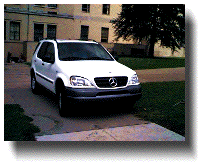 |
| JAMES Java Architecture for Mobile Extended Services |
|||
|
Smart card technology has opened up a vast range of applications. One important application will be the use of the card for the automotive industry as a value added service. Within Mercedes-Benz there are ideas and concepts for a broad spectrum of chip card applications to support physical mobility, financial mobility (financial transactions), mental mobility (telecommunication, media services), and financial security (assurances) of the card owner. Daimler-Benz Corporation wants to reduce the variety of cards and to offer only one or two cards that can be customized for multiple purposes; i.e. that can host different application modules on demand. This is achieved by the development of a standard software architecture for automotive chip card systems. To deal with many applications the architecture must be based on a common extensible infrastructure that allows the selective inclusion of applications from a smart card application portfolio. The main focus of the JAMES project was on an architectural vision with a twofold plan: First, to establish a software architecture for automotive smart card applications and second, to identify an automotive class library providing a set of common functions for these applications. The JAMES project had two distinct phases:
The JAMES project has been finished in June 1998. |
|||
| Cooperations | |||
|
|||

